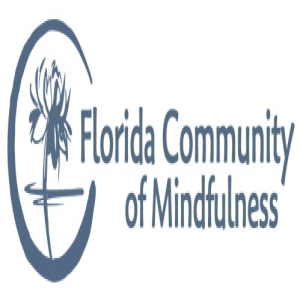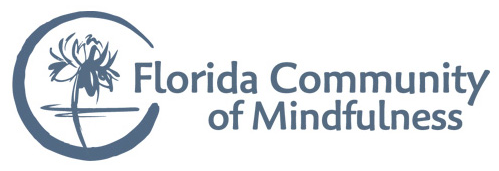Episodes

Monday Dec 09, 2019
Acknowledging and Transforming Boredom with Mindfulness (2018)
Monday Dec 09, 2019
Monday Dec 09, 2019
March-December 2018

Monday Dec 09, 2019
Discourse on the Four Kinds of Nutriments - Consciousness (2018) (5 of 5)
Monday Dec 09, 2019
Monday Dec 09, 2019
March-December 2018

Monday Dec 09, 2019
Discourse on the Four Kinds of Nutriments - Volition (2018) (4 of 5)
Monday Dec 09, 2019
Monday Dec 09, 2019
March-December 2018

Monday Dec 09, 2019
Monday Dec 09, 2019
March-December 2018
In this talk, Dharma teacher Fred Eppsteiner discusses the nutriment of sense impressions. The Buddha taught that as human beings, we consume four basic types of nutriments: Edible Foods, Sense Impressions, Volition and Consciousness. What we choose to consume in each of these areas greatly affects the wellbeing of our bodies and our minds. This talk is on the second of these four nutriments, and further talks will elaborate on the other three nutriments. Fred explains that just as what we put into our bodies affects its well-being, so to do the sensory experiences we take into our minds affect its well-being. He encourages us all to cultivate a mindfulness that helps us to discern between sensory experiences that support a wholesome, healthy mind, and those which nurture unwholesome mind-states. He also emphasizes the importance of this training in the context of our modern world where we have the capacity to have sensory experiences all day long through our digital devices.

Monday Dec 09, 2019
Discourse on the Four Kinds of Nutriments - Edible Foods (2018) (1 of 5)
Monday Dec 09, 2019
Monday Dec 09, 2019
March-December 2018
In this talk, Dharma teacher Fred Eppsteiner discusses the nutriment of Edible Foods. The Buddha taught that as human beings, we consume four basic types of nutriments: Edible Foods, Sense Perceptions, Volition and Consciousness. What we choose to consume in each of these areas greatly affects the wellbeing of our bodies and our minds. This talk is on the first of these four nutriments, and further talks will elaborate on the other three nutriments. Fred explains that as human beings, we must eat in order to survive; we must take in edible foods in order to sustain and nurture our bodies. This day and age there are many options of what we can eat, but as Buddhist practitioners we are compelled to look deeply into what we are eating and why we are eating. We want to look into the suffering that may arise in our bodies from what we eat, as well as the suffering that may be inflicted on the planet, to animals, and to others in the production of the food we choose to consume. We want to also look into whether we are eating to sustain and nurture our bodies or if we are eating to satisfy our desire for pleasurable foods or perhaps to meet a deep psychological need? Looking deeply in this way, we can see the connection between what and how we consume edible food and the suffering or wellbeing of our body and our mind.

Monday Dec 09, 2019
Thirty-Seven Practices of a Bodhisattva (2018, Part 2 of 2)
Monday Dec 09, 2019
Monday Dec 09, 2019
Series | 2017 - 2018
In these talks, Dharma teacher Fred Eppsteiner comments on several verses from Togme Zangpo's text: The Thirty-Seven Practices of a Bodhisattva. These teachings show us how to develop the awakened mind so that we can devote our lives to being of service to all beings.

Monday Dec 09, 2019
Monday Dec 09, 2019
April 1, 2018
In this talk, Dharma teacher Fred Eppsteiner explains that one of the common myths of Buddhism is that meditation alone will relieve us of our suffering. In fact, meditation is just one facet of the path set forth by the Buddha, and it is used not simply to calm our emotions, but to look deeply within ourselves to discover what is causing us to suffer. Another aspect of the Buddhist path is cultivating what is called Right View. When we cultivate Right View, we are retraining our minds to see life as it really is, rather than through incorrect thinking which is the cause of much of our emotional afflictions. Having Right View means we understand deeply that everything is impermanent and everything is made up of parts; that everything is the way it is because of countless causes and conditions. Deeply realizing these basic teachings of Buddhism are key to having emotional wellbeing and are really a prerequisite to developing oneself in meditation.

Monday Dec 09, 2019
Stepping Out From the Confines of Our Conditioning (2018)
Monday Dec 09, 2019
Monday Dec 09, 2019
March 25, 2018
In answers to questions from the audience, Dharma teacher Fred explains that our typical way of relating to life and to our minds is driven by our conditioning rather than with wisdom, clarity, or intentionality. He shares how, by applying the teachings of Buddhism in our lives, we can see more clearly and relate to what is going on in life in an intelligent way, thus causing much less suffering for ourselves and others.

Monday Dec 09, 2019
Ending the Self's War with Reality (2018)
Monday Dec 09, 2019
Monday Dec 09, 2019
March 4, 2018
In this talk, Dharma teacher Fred Eppsteiner explains how our conditioned Self is coloring reality with thoughts, memories, opinions, and emotionality, and that because of this we do not see things clearly. In addition, the Self is constantly dissatisfied with the way it perceives things; it is constantly wanting things to be different than they are. Fred term's this as the Self being at war with reality. He explains that it is this misperceiving and rejecting of reality that are the basis of all of our Self created dramas in life. Fred goes on to explain that transforming our fundamental view of reality so that we see things clearly is key to transforming our suffering which arises from these fundamental misperceptions.

Monday Dec 09, 2019
Buddhist Ethics and Transforming One's Karma (2018)
Monday Dec 09, 2019
Monday Dec 09, 2019
In this talk, Dharma Teacher Fred Eppsteiner speaks about the importance of being mindful of ones actions of body speech and mind. He explains that the state of our minds and our lives are largely the product of our past activities, so the actions we take today are shaping our future. With that understanding, it becomes clear that if we want to create a favorable future with less suffering, then we need to begin with our actions in this moment. In order to do that, we need to cultivate mindfulness and be aware of what we are doing, saying and thinking. Then we can have the capacity to shift our actions from ones that support suffering to ones that support well-being.

